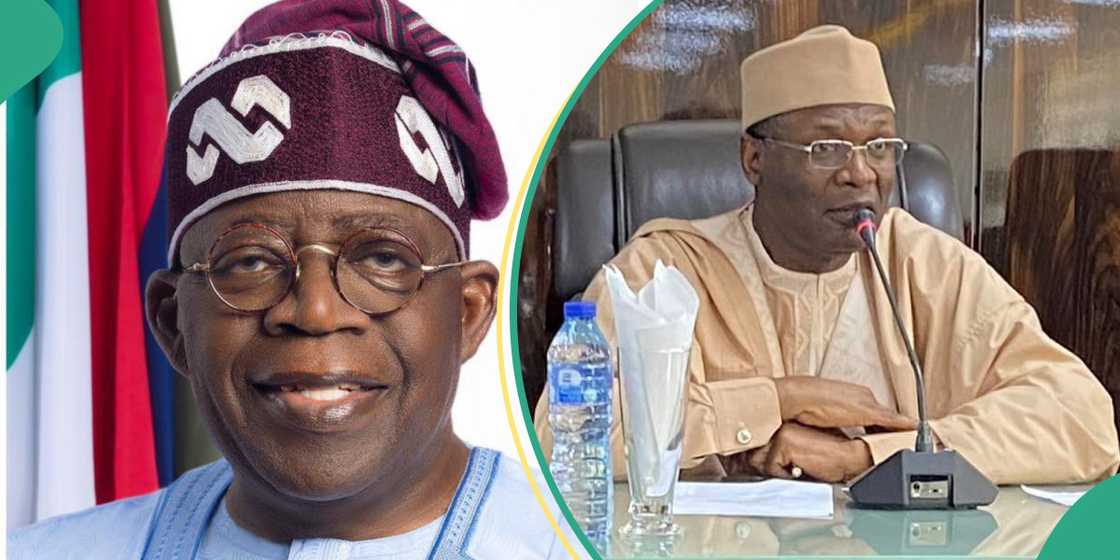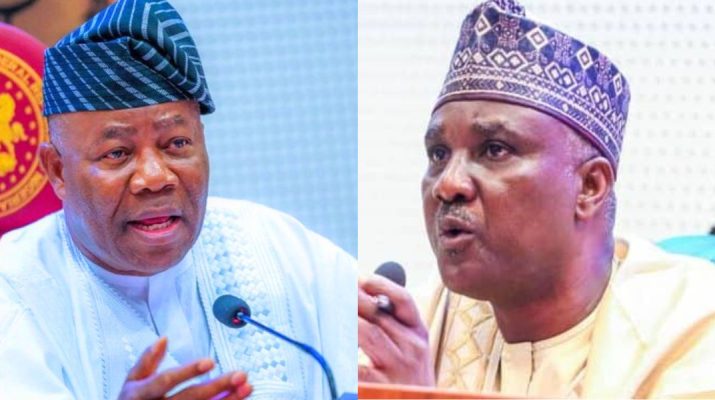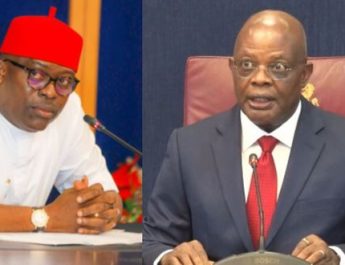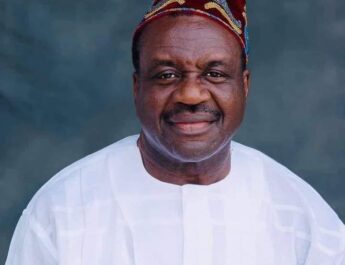At public hearings on the review of Nigeria’s Constitution, citizens clamour for a multitude of amendments including ridiculous demands for states creation, state police, special seats for women, youth and persons with disabilities in government, as well as electoral reforms that would guarantee free, fair and credible elections, but politicians seem bent on scuttling electoral reforms in their bid to continue to rig elections in their favour
By Edu Abade
The first thing that strikes any discerning mind during the public hearings on the review of the 1999 Constitution of the Federal Republic of Nigeria (as amended) organized by the Senate and House of Representatives is that official campaigns for the 2027 general elections have commenced, what with a pledge by Speaker of the House, Tajudeen Abbas, that whatever Nigerians wanted would be granted.
This Abass pledge, political pundits argued, is a mere political statement, to say the least. Deputy Chief Whip, House of Representatives and Chairman, South West Centre A domiciled in Lagos, Isiaka Ibrahim Ayokunle, who presented the position of Speaker of the House, assured delegates from all walks of life that the House was committed to ensuring that the review reflected the diverse and broad views of Nigerians, saying, “Together we can shape a constitutional future that will benefit all Nigerians.”
Also, Consultant to the Constitutional Review Compendium Committee, Barrister Seni Adio (SAN), said no fewer than between 86 and 90 bills were being considered in the House of Representatives for what he described as “very fundamental changes to the Nigerian Constitution, just as Abbas assured that whatever the citizen desired should be considered resolved and taken care of.
Adio, who further described the reforms being proposed as profound and inclusive, explained that some of the most pressing demands include dedicated seats for women and Persons With Disabilities (PWDs) in governance at both the state and federal levels, electoral reforms, devolution of powers to the states and the conduction of general elections in one day.
Others the ceding of powers to states high courts to arbitrate on electoral matters since the Independent National Electoral Commission has been overburdened and unable to handle electoral matters speedily, the creation of a Political Parties Regulatory Commission (PPRC), as well as an Election Offences Commission (EOC) and state police, among many other demands.
Most significantly, most delegates, who defied the strict timing to air their view in the highly regulated public hearing that started late, demanded other reforms including the creation of states, most of which might never be realized under the current dispensation or even after, even with the assurances from Abbas that whatever Nigerians wanted would be approved-a statement some analysts described as ‘a 2027 campaign tantrum.’
During the session on state governments, who were represented by their respective governors, Tentacle observed that of the South West states of Lagos, Ogun and Oyo, only Governor ‘Seyi Makinde failed to send a representative to the public hearing, perhaps due to party differences, but delegates, who reflected the larger yearnings of their people, demanded the creation of Ibadan, Oyo (with capital in Oyo Town) and Oke-Ogun states from the present Oyo State.
Ogun State, on the other hand was represented by a handful of past and present governors and senators including former Governor Gbenga Daniel, Senator Gbenga Kaka, among others, who demanded fair hearing from members of the public and the creation of Ijebu and Remo states from the present Ogun State.
Tentacle learnt that in the South West Centre B for Ekiti, Ondo and Osun, which held in Akure, participants demanded other ridiculous reforms, but in Lagos and even more absurd demand for the creation of Badagry State was made, besides agitations from organized labour unions including the Nigeria Labour Congress (NLC), Trade Union Congress (TUC), National Union of Local Government Employees (NULGE), traditional rulers, organized youth groups, represented by the National Youth Council of Nigeria (NYCN), Nigerian Youth Coalition, National Association of Nigerians Students (NANS) and the Nigerian Youth Parliament, among others.
There were also presentations from political parties, civil society organizations, socio-cultural groups, professional bodies such as the Nigeria Bar Association (NBA), Nigerian Medical Association (NMA), the Nigeria Society of Engineers (NSE) and the Nigerian Union of Teachers (NUJ).
Others are the Manufacturers Association of Nigeria (MAN), All Farmers Association of Nigeria (AFAN), Association of Market Men and Women (AMMW), Association of Chambers of Commerce, Industry, Mines and Agriculture (ACCIMA), Miyetti Allah Cattle Breeders Association of Nigeria (MACBAN), Parks Management Associations represented by the National Union of Road Transport Workers (NURTW) and National Association of Road Transport Owners (NARTO), Banks and others Financial Institutions, as well as Oil and Gas Companies, among others.

On his part, Lagos State Governor, Babajide Olusola Sanwo-Olu, restated the need for a Special Status for Lagos State, stating that such a request is long overdue.
Sanwoolu, who was represented by his Deputy, Dr. Kadri Obafemi Hazmat, said the request has become imperative owing to the strategic position of the state, especially as the former federal capital of the nation and the burdens it bears.
The Governor, who made the request while speaking at the South-West Centre A (Lagos, Ogun and Oyo States) Lagos Centre Public Hearing on the Review of the 1999 Constitution held at the Watercress Hotel, Ikeja, Lagos, also restated the call for State Police, saying state policing is not about semantics but about protecting the people.
He argued that wherever the government of a nation moves its capital from one state to another, the government does not abandon such a state to carry the burden left, but compensates the state with a special status. He therefore urged the federal government to be fair to the people of Lagos by granting it a special status as a former federal capital of the nation.
He said, “Any State that was once the federal capital of the nation cannot just inherit the assets and liabilities of the entire country, but then be forgotten of the responsibilities that come with those assets. As a nation, let us be fair to the people of Lagos by granting the state a special status.”
Speaking further, the governor stressed the need for the National Assembly to ensure the listing of the 37 Local Council Development Areas (LCDAs) on the Constitution, adding that these LCDAs since creation in 2003 have succeeded in bringing governance closer to the people and accelerate grassroots development in the state and needed to be listed and recognized in the nation’s constitution.
He noted that the public hearing is not just another chapter in the country’s constitutional history but a special and invaluable chance for the people of Lagos and the entire South West region to have a direct and meaningful say in shaping the nation’s highest law.
He therefore urged, saying, “As we embark on this critical process of reviewing our constitution, we must be guided by the principles of inclusiveness, equity, and justice. We must listen to everyone, men and women, young and old, from all corners of our communities. Their hopes, worries, and dreams should shape the amendments that come out of this process.”
While commending the Ayokunle-led Committee for its dedication to a transparent and inclusive review process, he charged all stakeholders and citizens to participate by canvassing their views with clarity of purpose.
The Governor reaffirmed that his government is fully committed to the principles of democracy, good governance, and the rule of law, “we will keep supporting all initiatives aimed at strengthening our constitutional framework and deepening the roots of our democracy,” he said.
Earlier in his address, Ayokunle stated that the committee is fully committed to conducting the review process with utmost fairness, openness, and transparency, saying that they recognize the importance of the stakeholders’ voices and the critical role each plays in shaping the future of the nation.
He added that the committee’s goal is to ensure that the review reflects the diverse aspirations of the people, upholding justice and equity, stressing that the committee is to ensure that the review process is transparent and all stakeholders remain informed of the review at every step of the review.
The chairman, therefore, assured that all memoranda and suggestions addressed to the committee will be carefully consolidated and given the attention they deserve at the national assembly level.
In their goodwill messages, the Speakers of the Lagos, Ogun and Oyo State House of Assemblies, supported the recognition of traditional rulers in the constitution, devolution of power from the centre, state police, Local Council Development Areas (LCDA) be enlisted in the constitution of Nigeria, waterways permit be transferred to the state government, Insecurity, among other issues that were peculiar to the region
In his submission, Executive Director of Environmental Defenders Network (EDEN), Barrister Chima Williams stressed that to ensure that the syndrome of bandwagon effect is reduced to the barest minimum, electoral timetables should be drawn in such a way that elections are conducted from the lower positions.
He stated that on day one elections should be conducted into the office of State Houses of Assembly and National Assembly and on day two, gubernatorial and presidential elections, while for state elections, councillorship and chairmanship elections should hold in one day and that the interval between one national election and the other should not exceed five working days.
EDEN also urged the National Assembly to expunge sections of the Land Use Act that grants governors limitless powers to revoke and expropriate lands at will, insisting that practical examples have shown them to be inhibitors of development.
In its usual manner of defending environmental justice, EDEN canvassed enforcement of environment protection to serve as pivotal support for life and livelihoods, citizens’ participation in the budget and the need for independent electoral bodies, among others.
In a memorandum to the House of Representatives Committee on the Review of the 1999 Constitution, the group said that under the Land Use Act as currently enforced there is overreach on the part of the governors hence Sections 21, 26 and 28 of the Act should be expunged.
The group hinged its position on feedback from professionals, private property developers and the organized private sector that have always fingered the section as the greatest disincentive to real estate development and the growth of the real estate sector of the nation’s economy.
It also said one of the most contentious sections of the Act is the Governor’s consent and the issuance of the Certificate of Occupancy (C of O) which is required as collateral for obtaining loans from financial institutions. It recommended instead that Nigerians should be allowed to use their land resources for economic empowerment without the interference of any Governor or Chairman.
The memorandum also frowns at Sections 47 and 30 of the Act which denies courts the jurisdiction to hear and determine the amount or adequacy of compensation by making the Land Use and Allocation Committee the only arbiter on appeal. It recommended that the two sections should be expunged.
On the enforcement of environmental protection the group wants to see the Chief Justice of the Federal Republic of Nigeria directing the establishment of environmental courts out of every jurisdiction of the States and Federal High Courts of Nigeria for the sole purpose of quick and efficient determination of environmental protection cases.
It equally wants every organ and institution of the Federal Republic of Nigeria to recognize and guarantee the Rights of Nature to maintain her vital cycles and provide services for all species as a means of halting reckless exploitation and damaging of ecosystems.
To ensure that the country’s electoral processes does not only produce credible individuals but one that is acceptable to the people it called for review of the electoral laws to discouraging cross carpeting, determination of election petitions before swearing in or inauguration, independent electoral bodies and a proper electoral timetable.
The House of Representatives Committee on Constitution Review commenced the open hearings and schedule guide for the zonal public hearings across Nigeria’s six geopolitical zones from Wednesday July 2, 2025.
As the public hearings end in Lagos, Akure, Enugu, Yenagoa, Abuja and other centres in the North-Central, North-East and North-West on Monday, July 21, 2025, it is clear that giving the insecurity, hunger and hardship in the country, exacerbated by killings, kidnappings, banditry, terrorism and corruption ravaging the country, Nigerians cannot wait for a better nation with equal opportunities for all and can only hope on the National Assembly and the incumbent administration to do the needful and salvage Nigeria from imminent collapse.




